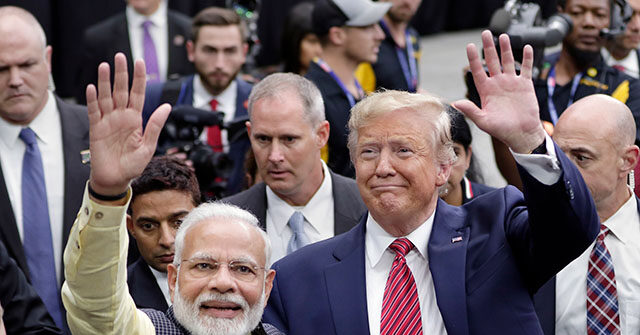Indian Foreign Minister Subrahmanyam Jaishankar expressed confidence regarding Donald Trump’s potential return to the White House, indicating that India does not share the anxieties some nations have about his leadership. During a speech at the silver jubilee celebration for an Indian scholarship group in Mumbai, Jaishankar stated that Trump’s previous victory reflects a larger global political realignment that India supports. He emphasized that while there is a noticeable shift in power from the West to the East, the traditional powers—especially the United States—remain significant players in the international arena. Jaishankar highlighted Prime Minister Narendra Modi’s strong rapport with Trump as an avenue for enhancing cooperation between the two countries, underscoring that older industrialized economies retain their importance in global markets.
Jaishankar’s remarks included a cautionary note to not overemphasize the shift toward the East, urging a balanced perspective on global dynamics. He asserted that despite India’s emerging prominence, the Western economies still play a critical role as investment destinations and hubs for innovation. His analysis reflects a pragmatic approach—recognizing the realities of global economic shifts without discounting the strengths of traditional economies. Modi’s ability to foster relationships with different U.S. presidents was praised by Jaishankar, illustrating a continuity of diplomacy that could facilitate stronger ties, regardless of who occupies the White House.
Trump’s presidency was characterized by a complicated relationship with India, particularly concerning trade tariffs. Although Trump has previously lauded Modi and acknowledged their mutual respect, he did not shy away from criticizing India’s tariffs on imports during his 2024 economic policy speech. Trump asserted the need for reciprocity in trade agreements, pointing out that countries like India impose tariffs that are disproportionately high compared to the U.S. This laid the groundwork for potential friction in U.S.-India trade relations if Trump returns to power, especially as the two nations had previously engaged in a tariff war during his first term.
Trade dynamics between India and the U.S. have seen significant changes, particularly under the Biden administration, where India has increased its exports considerably, creating an escalating trade imbalance. Reports suggest that India’s exports to the U.S. rose by 46 percent, while imports only grew by a smaller margin. Observers speculate that an administration under Kamala Harris might favor a softer trade policy with India compared to Trump, which could potentially be more beneficial for Indian exporters. Nevertheless, exporters are concerned about the possibility of heightened tariffs on various products if Trump were to win the 2024 election.
Despite the uncertainty posed by Trump’s economic policies, some analysts argue that India could emerge as a “safe haven” for investors wary of volatility in emerging markets during protectionist measures. The Indian economy boasts strong growth, relatively low exposure to the U.S. and Chinese markets, and a robust local stock market, making it an attractive option amidst increasing global risks. Investments may shift back to India as confidence in the Chinese market wanes, especially should Trump’s presidency usher in market volatility. This insight highlights the adaptive nature of India’s economic positioning in response to global trends.
Ultimately, while India faced a significant decline in foreign investments recently, the increase in domestic investment helped to mitigate these losses. For India, the evolving geopolitical landscape presents both challenges and opportunities, particularly under varying U.S. leadership. Jaishankar’s statements reflect a hopeful outlook on U.S.-India relations while acknowledging the complexities of trade dynamics and the importance of strategic diplomacy, especially as the world prepares for the upcoming U.S. presidential election and its potential repercussions on global commerce.

